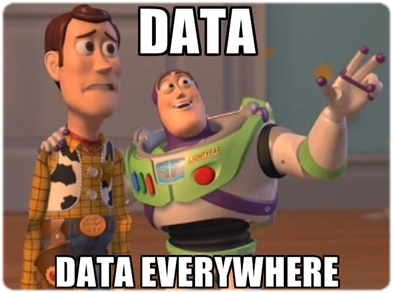
Big Data here, Big Data there… but what does it really mean? And to what extend should you, as a small practice or an independent physician, feel concerned about it?
Here is the first of a three posts serie on THE (supposedly) hot topic.
We will start with a brief overview about what is Big Data and how it can positively affects healthcare.
What is Big Data?
Throw a snowball from the top of a mountain, and the ball will get exponentially bigger and bigger as it goes down. Big Data is basically the same thing, but applied to data collection: optimize the way you search and record data, and you will get the same exponentially growing amount of data.
More volume, more velocity, more variety, the virtual information, like the snowball, can turn into a big uncontrollable threat. That is why the concept of “Big Data” also includes the means to manage this ever-expanding amount of data, or, as Steve Lohr puts it: “Big Data is a shorthand label that typically means applying the tools of artificial intelligence, like machine learning, to vast new troves of data beyond that captured in standard databases.”.
Big Data is good for healthcare
Big data is everywhere, and healthcare is no exception. It entered the healthcare world soon after electronic health records (EHR) and health information exchanges (HIE) started to reach the cruising speed in their infiltration process. As digital data collection and transfer were getting more and more efficient, healthcare big brains tried to figure how useful this growing snowball can be used. They ended up with a very exciting prophecy saying that Big Data is the future, because:
– it allows the healthcare professionals and providers to make a better use of their patients’ medical information (easier to track data, to turn them into information, and to integrate them in a wider context)
– it improves the patients empowering, as it is easier for the patients to use their own medical information
– it can be used to find pattern of behaviour from a large amount of population (it can help in case of epidemics, for example)
– it boosts the genomic research, a very promising field of investigation and application.
Concrete examples of Big data applications
But after reading all these enthusiastic reports/articles/posts, one can’t help but wondering: there is a lot of “will”, a lot of “could”, but how many “does”? What are the actual and concrete applications of Big Data for the physicians?
In addition to very specific treatments in oncology, imagery management and opening the entire new field of genomic research, Big Data seems to find a application in daily routine, as a means to cross various information from various sources to improve patients monitoring, like a kind of super-EHR interconnected to other sources of information (see this example).
And as far as the patient empowering issue is concerned, the story of this Italian suffering from a brain tumor using and sharing his medical information to find a cure can be an interesting (but quite extreme) illustration.
Seems nice, doesn’t it?
But stay tuned, because next week, we will have a closer (and not-so-enthusiastic) look on the Big Data…
Photo credit: The Big Data Doctor

